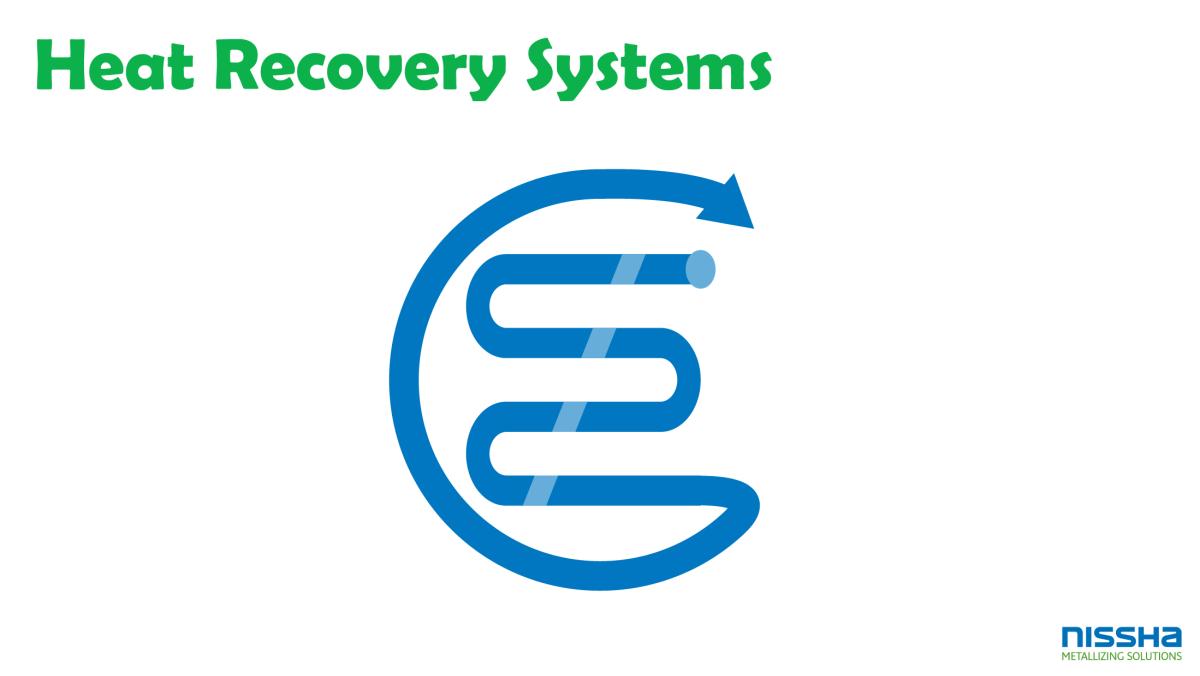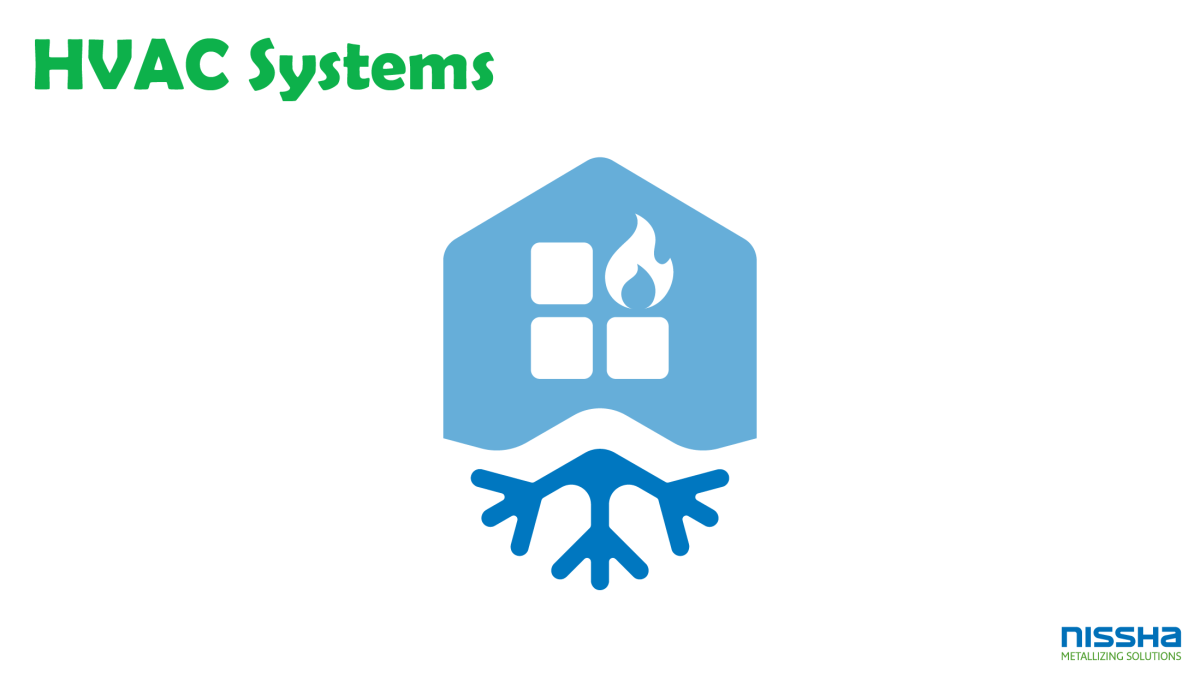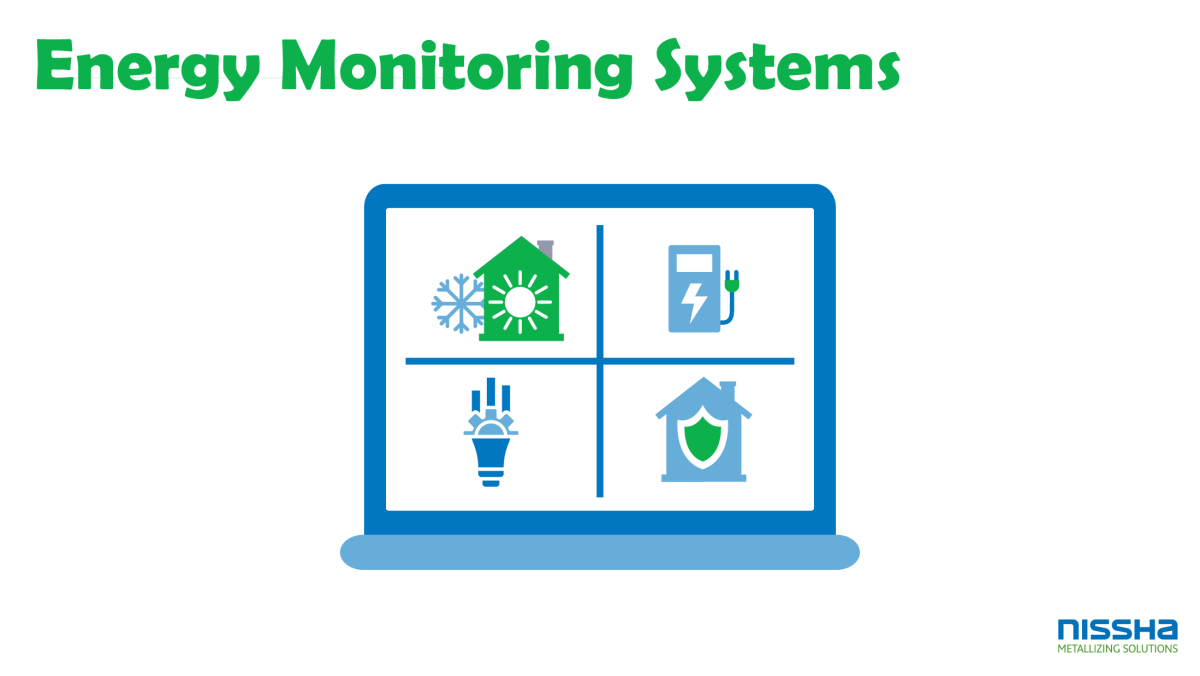3. Sustainable Change in Action
Episode 3: Decarbonization Strategies - Reducing Our Carbon Footprint
In the third episode of our ongoing Sustainability Miniseries, we dive deep into the decarbonization strategies that are propelling Nissha Metallizing Solutions (NMS) toward a more sustainable future. Decarbonization is more than just a goal—it's the foundation of our long-term vision for creating a more environmentally responsible company. Every part of our operations, from production lines to energy infrastructure, is aligned with reducing our carbon footprint.

Harnessing Heat Recovery Systems: A Cornerstone of Energy Efficiency
One of the most impactful initiatives in our decarbonization journey is the adoption of advanced Heat Recovery Systems. These systems capture and repurpose the excess heat generated during manufacturing processes, transforming what was once waste into a valuable resource.
At our Italian facilities, we've made significant strides by implementing Combined Heat and Power (CHP) systems. CHP not only delivers a dual benefit of heat and electricity generation from a single fuel source but also drastically reduces the need for external energy inputs.
Our Italian operations have seen marked improvements in overall energy efficiency as these CHP systems lower both carbon emissions and operational costs. By centralizing energy generation and recovery, we are reducing the strain on external energy grids while directly improving our environmental impact.
In Belgium, the installation of a dedicated windmill marks a significant step towards achieving sustainable energy goals. This windmill now generates a substantial portion of the required electricity, drastically reducing reliance on non-renewable sources. By complementing this initiative with the purchase of certified green energy for any remaining needs, the site has effectively minimized its carbon footprint. As a result, the Scope 2 emissions in Belgium have already reached net zero, showcasing a strong commitment to reducing environmental impact and aligning operations with climate targets.

HVAC System Optimization: Cutting Energy Waste in Large-Scale Manufacturing
Heating, Ventilation, and Air Conditioning (HVAC) systems are notoriously high-energy consumers in industrial environments. Recognizing this challenge, NMS has prioritized upgrading HVAC systems to more energy-efficient models. In our U.S. plant, we've recently completed a comprehensive overhaul of the HVAC infrastructure, incorporating energy-saving technologies that ensure these systems work at their highest efficiency levels.
This shift has had a dual impact: not only has it substantially decreased the amount of energy consumed by our facilities, but it has also contributed to cutting Scope 1 and 2 emissions—those generated directly by our operations and indirectly by the electricity we purchase. This strategic upgrade demonstrates our commitment to reducing energy wastage on a large scale while staying aligned with global carbon reduction targets.

Illuminating a Smarter Future: Intelligent Lighting Solutions
Incorporating Smart Lighting Solutions is another key aspect of our decarbonization efforts. Lighting is an often-overlooked source of energy consumption, but in manufacturing environments where lights are on for extended periods, every small inefficiency adds up. Across multiple NMS sites, we've introduced advanced lighting systems that automatically adjust brightness based on occupancy, motion, and the availability of natural light.
These systems not only drastically reduce energy consumption but also enhance the comfort and productivity of our workforce. By linking energy conservation to an improved work environment, NMS is building a more sustainable and pleasant atmosphere for employees while lowering our carbon footprint.

Self-Production Technologies: Solar, Wind, and Beyond
A vital part of our decarbonization strategy involves the shift towards Self-Production Technologies. We've invested heavily in renewable energy sources like solar and wind power to reduce reliance on conventional, carbon-intensive energy.
For example, at our facilities in Italy and Belgium, we’ve installed photovoltaic panels that harness the power of the sun. This investment has allowed us to transition a portion of our energy needs to solar power. We’re also exploring innovative solutions such as green hydrogen and fuel cells, which hold immense potential for the future of clean, decentralized energy.
These steps ensure that NMS not only benefits from reduced carbon emissions but also gains more energy independence, a critical asset in a world moving towards a low-carbon economy.

Energy Monitoring Systems: Real-Time Insight, Real-Time Impact
Sustainability without accurate data is guesswork. That's why we've integrated Energy Monitoring Systems across our global operations. These systems allow us to track energy usage in real-time, providing detailed insights into where energy is being consumed and where inefficiencies lie.
By utilizing these tools, we can make data-driven decisions that directly impact our decarbonization strategy. Real-time monitoring enables us to adjust operations on the fly, ensuring that energy is only used when needed and reducing unnecessary waste. In essence, this technology acts as the nerve center for our entire decarbonization initiative, helping us remain agile, responsive, and impactful in our efforts to curb emissions.
A Holistic Approach to Decarbonization
Decarbonization at Nissha Metallizing Solutions is not a single initiative but a holistic transformation. From heat recovery and HVAC optimization to smart lighting and renewable energy production, we’re embedding sustainability into every facet of our operations. This comprehensive approach not only reduces our environmental footprint but also ensures that we remain at the forefront of sustainable manufacturing.
As we continue on this journey, NMS is setting the bar for what it means to be an environmentally responsible company. The commitment to decarbonization is evident in every upgrade, every investment, and every innovative step we take. We believe that through these combined efforts, we are not only reducing our carbon footprint but actively contributing to a more sustainable future for the planet.
In our next episode, we will explore how NMS is embracing circular economy practices to reduce waste and create value from recycled materials. Stay tuned for more on how we’re closing the loop in sustainability.